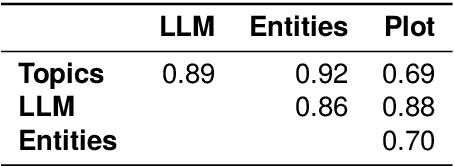Reap the Wild Wind: Detecting Media Storms in Large-Scale News Corpora
Paper and Code
Apr 14, 2024



Media Storms, dramatic outbursts of attention to a story, are central components of media dynamics and the attention landscape. Despite their significance, there has been little systematic and empirical research on this concept due to issues of measurement and operationalization. We introduce an iterative human-in-the-loop method to identify media storms in a large-scale corpus of news articles. The text is first transformed into signals of dispersion based on several textual characteristics. In each iteration, we apply unsupervised anomaly detection to these signals; each anomaly is then validated by an expert to confirm the presence of a storm, and those results are then used to tune the anomaly detection in the next iteration. We demonstrate the applicability of this method in two scenarios: first, supplementing an initial list of media storms within a specific time frame; and second, detecting media storms in new time periods. We make available a media storm dataset compiled using both scenarios. Both the method and dataset offer the basis for comprehensive empirical research into the concept of media storms, including characterizing them and predicting their outbursts and durations, in mainstream media or social media platforms.
 Add to Chrome
Add to Chrome Add to Firefox
Add to Firefox Add to Edge
Add to Edge